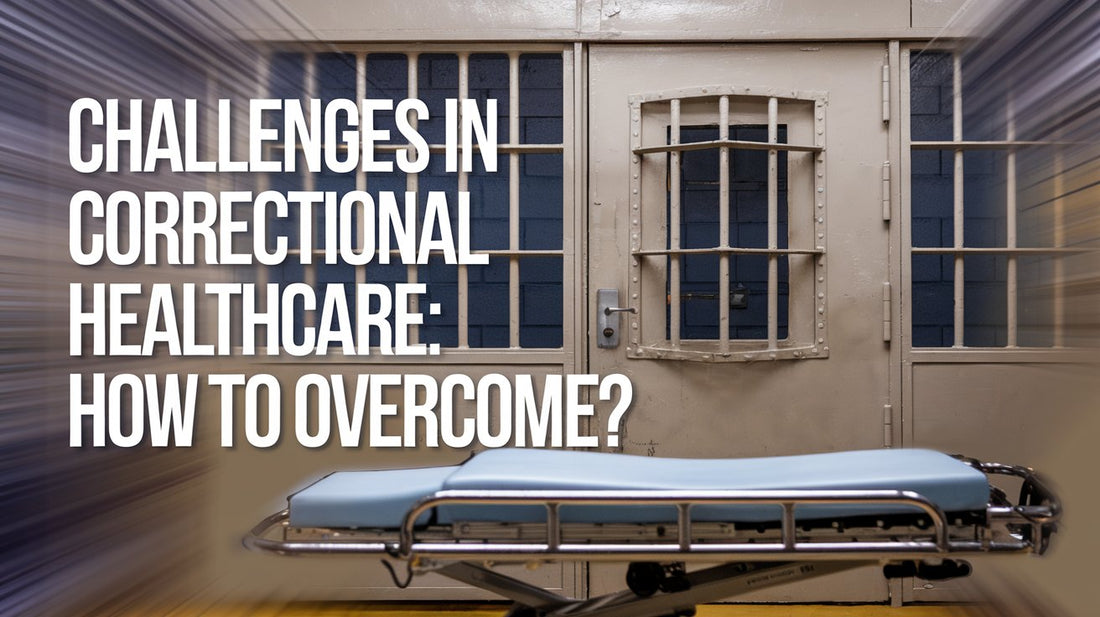
Challenges in Correctional Healthcare: How to Overcome?
Share
Correctional healthcare faces a unique set of challenges, as it operates within an environment designed for security rather than healing. Incarcerated populations often have complex health needs that go unmet, leading to poor health outcomes and increased costs for the correctional system. Addressing these challenges is essential to ensure the health and well-being of inmates and the safety and efficiency of correctional institutions.
Challenges in Correctional Healthcare
Prevalence of chronic and infectious diseases
One of the most pressing issues in correctional healthcare is the prevalence of chronic and infectious diseases. Common health problems include hypertension, diabetes, hepatitis C, tuberculosis, and mental health disorders such as depression and schizophrenia. Many inmates arrive with untreated conditions, and the correctional environment often exacerbates their health issues. The high turnover of inmates and limited access to medical resources further complicate care delivery. Additionally, correctional facilities house an increasing number of older inmates who face unique challenges such as dementia, limited mobility, and chronic pain, making geriatric care a growing concern.
mental health crisis within prisons and jails
Another significant challenge is the mental health crisis within prisons and jails. A large percentage of incarcerated individuals have a history of trauma, substance use disorders, and untreated mental health conditions. Correctional counselors and healthcare providers often struggle with limited resources, high caseloads, and the need to balance therapeutic care with institutional security. High turnover among correctional staff, including nurses and counselors, further strains the system, leading to inconsistent care and increased stress on remaining staff.
Reentry process
The reentry process presents additional challenges. Upon release, inmates often face obstacles such as limited access to healthcare, housing insecurity, and unemployment. These barriers increase the likelihood of recidivism, especially for individuals with untreated mental health or substance use disorders. The largest obstacle to successful reentry is the lack of continuity of care from the correctional facility to the community. Developing comprehensive reentry strategies that address healthcare, employment, and social support is critical for reducing recidivism and promoting successful reintegration.
How to Overcome?
To overcome these challenges, correctional healthcare systems must adopt evidence-based practices and innovative strategies. Expanding telehealth services can improve access to specialized care, particularly in rural or underserved areas. Training correctional officers and healthcare staff in trauma-informed care can enhance their ability to manage difficult inmates and reduce conflict. Improving staff retention through competitive salaries, professional development, and supportive work environments can also mitigate the impact of high turnover.
Collaboration between correctional facilities, community healthcare providers, and social services is essential for improving care continuity and supporting successful reentry. Programs that provide inmates with education, vocational training, and life skills can enhance their chances of finding employment and stable housing upon release. Additionally, addressing the social determinants of health—such as access to healthcare, housing, and social support—can significantly improve outcomes for formerly incarcerated individuals.
At Energized Vision, we understand the complexities of correctional healthcare and offer tailored coaching and consulting services to healthcare professionals navigating this challenging field. Whether you're a healthcare provider, administrator, or counselor, we can help you develop strategies to improve care delivery, enhance staff well-being, and support inmate rehabilitation. Schedule your free discovery call to learn how we can support your professional growth and impact in correctional healthcare.

